Nine: Series review (spoiler free)
by javabeans
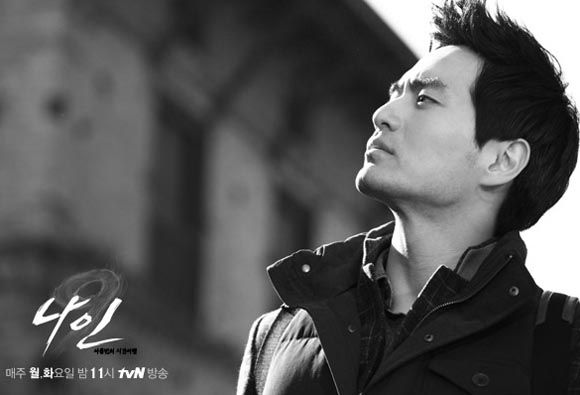
Better late than never, right? I caught tvN’s time-travel series Nine: Nine Time Travels when it first aired in March, and had a generally favorable response: good actors, solid directing, interesting backdrop, a story with potential. But while they were positive impressions, they were not particularly strong ones—it was well-executed, but a little slow to get going. It took its time setting up its world and its conflict, and thus fell by the wayside.
But I’m glad I returned to Nine, even if it didn’t grab me with the kind of immediacy that addicts you right away, because it ended up being one of the year’s highlights. It was smart and tightly written, with a story that sent your brain awhirl after every episode, trying to figure out what would happen next and how our hero would work his way out of his fix. I appreciated the way Nine juggled its cerebral, intricate plot without sacrificing entertainment value, supplying a steady stream of suspenseful turns.
Sadly I had no magical incense sticks of time-travel to buy me the time to cover the show as it aired, but hey, I’m here now. Although, lacking the wherewithal to time-travel is probably a fortunate thing, given the tribulations our hero faces in his wormhole adventures as he jumps back twenty years in his own lifetime to right an egregious wrong. You can’t cheat in life and win, and that, as it turns out, applies to Time as well.
Important: No ending spoilers here! I will be putting up a separate post exclusively to discuss the ending [here it is], because I think it’s fascinating and warrants discussion, but don’t want to spoil an intricate drama for people who haven’t seen it yet. Plot points from the first half will be mentioned because that’s just necessary, but I’ve done my best to keep from giving away twists from later episodes.
SONG OF THE DAY
Nine OST – “그대라서” (Because It’s You) by Kim Yeon-woo [ Download ]
Audio clip: Adobe Flash Player (version 9 or above) is required to play this audio clip. Download the latest version here. You also need to have JavaScript enabled in your browser.
THE PREMISE
To get a fuller intro into the show, you can catch our recaps for Episode 1 and Episode 2, but I’ll give an abbreviated setup anyway:
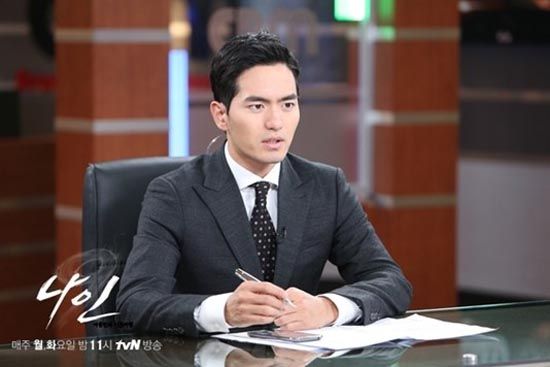
Our hero is Park Sun-woo (Lee Jin-wook), a successful news anchor who sees every scenario through a no-nonsense, facts-first lens. He has an older brother who’s a wandering lost soul, as weak-willed as Sun-woo is strong; his ailing mother lives in a nursing home with dementia; and his father, a hospital director, was killed twenty years ago in a fire.
It’s the last point that sticks with Sun-woo even now, because while the hospital fire was ruled an accident, he believes otherwise. It was curious how his father’s ambitious friend soon took over the hospital and benefited handsomely, turning it into a large operation and becoming the rich chairman he is today. Sun-woo has long suspected Backstabber Choi of setting the fire to kill his father and enact the coup, but lacks evidence.
One day Sun-woo is called to Nepal after his brother is discovered dead in the Himalayas, clutching an incense stick. He had previously dismissed his brother’s fanatical insistence on the existence of a time machine, but comes to accept both the possibility and his brother’s mission: To find that time machine, go back twenty years to prevent their father’s death, and set everything to rights so they can live the life they were supposed to live.
THE RULES
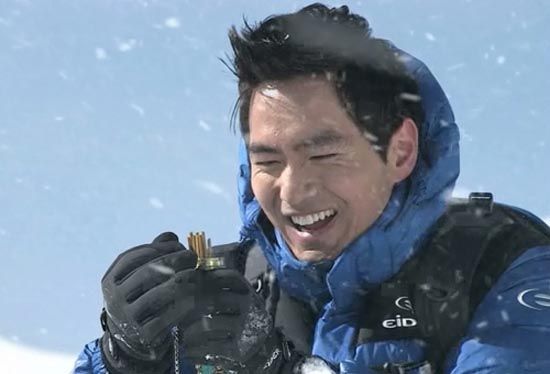
The mechanism of time travel in Nine is one of its most innovative and thought-provoking traits: All time flows at the same rate, regardless of which reality you are in. One incense stick will transport the traveler back exactly twenty years, so while Sun-woo can change something in that time, he cannot later negate it—his next trip back will occur after the first.
Thus time is a line, not a loop, and with these incense sticks Sun-woo has found a way to cut the queue. There are nine sticks, and a person can only travel back in time for as long as a stick burns, which is roughly thirty minutes. Consider Sun-woo’s two timelines (past and present) to be traveling on parallel tracks: If he changes something in the past, in the present he must wait for the past to react before his reality changes. All the time in between then and now remains unrippled until the change arrives.
If he were to kill somebody in 1993, for instance, he would return to 2013 and find that person long dead. However, if in 1993 he were to rig a bomb set for tomorrow to kill somebody, he would return to 2013 and find that his life will have remained the same, until the next day when the now-altered 1993 world experiences the bomb. Only then does history follow suit and change, and his 2013 self then acquires the memory of what happened.
This is the opposite of what we find in many time-travel stories, where a change in the past immediately affects the future, including the time traveler right then and there. Remember when Michael J. Fox time-traveled in Back to the Future and almost disappeared when he interfered with his parents’ romance? Nine’s mechanics are different.
Sound confusing? To add a complication, Sun-woo retains all his memories of the life he lived before the change. After the first time he changes something, he is essentially cognizant of two realities—there are his memories of the life he first lived, and also the memories he acquires of how things played out the second time. With nine sticks, Sun-woo essentially creates alternate realities every time he travels, and the same rules hold true for anybody who finds out about the time traveling. Once they know, they also retain memories of the other lives they lived, which means that there are fast-growing alternate threads of reality that get created with every change Sun-woo enacts. This can become occasionally confusing to keep straight, but is also deeply fascinating.
It also becomes a recipe for disaster, because you can’t go around creating so many ripples in the time-space continuum and expect to get away with it without consequence. And he does not.
SERIES REVIEW
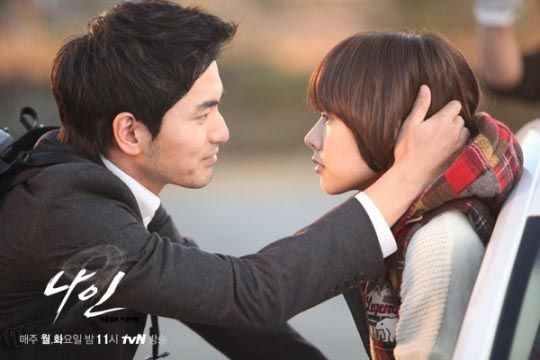
Nine is the most thoughtful of the time-travel series to come out of dramaland, and it’s perhaps the best treatment of time travel that I’ve ever seen on TV. It’s the only drama to actually be about time travel, rather than using it as a gimmick to feed another conceit. I have no problem with time-travel shows ultimately being about something else, because I enjoyed the hilarity, the fish-out-of-water antics, and the star-crossed romances that those other shows explored. But as a fan of the device itself, I’ve always been left a bit disappointed that many shows didn’t delve into the rules and consequences of time traveling itself; Nine, on the other hand, does so with depth.
I don’t know whether Nine is the first time-travel story to depict its two timelines flowing at the same rate, concurrently, though I generally assume that there’s nothing new under the sun and every idea has been done before. But even if it’s not unique in this approach, the drama wields this device with finesse, weaving the two timelines together while keeping their respective developments distinctly separate. It took me a few times to get used to the idea of future-reality not changing immediately (I kept expecting Sun-woo to land back in his time in a whole new reality), but the directing very clearly keeps the sequence of events straight for us. Thus the directing not only acts as a style choice or visual cue, but functions in a rather significant capacity as narrative editor.
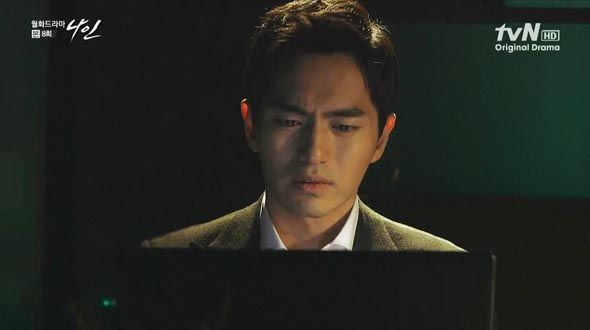
Sun-woo makes for a dynamic hero for several reasons, which include his dogged pursuit of justice, his wry sense of humor, his resourcefulness and quick thinking. Moreover, making him cool-headed and logical makes him the ideal foil for this setup—nobody believes this fantastical premise less than the man living it. He’s the ultimate skeptic, and that is a grounding force in a drama that could spiral into incredulity rather quickly.
Furthermore, Sun-woo isn’t aiming to take advantage of this loophole in the universe for reasons of selfish greed. Well, yes, altering events in his past is selfish and perhaps trying to get the world to give back his father’s life is greedy, but he’s primarily driven by a desire to see justice meted out. If the world won’t take down Choi, then he will. His overall decency and intelligence make him easy to root for, in case the terminal disease weren’t enough to earn our sympathies. And while brain tumors seem so ubiquitous in dramas, here it serves as an impetus to get our hero going. The fact that he’s dying also highlights the point that he’s not out to score for his own purposes, keeping his motives (relatively) pure.
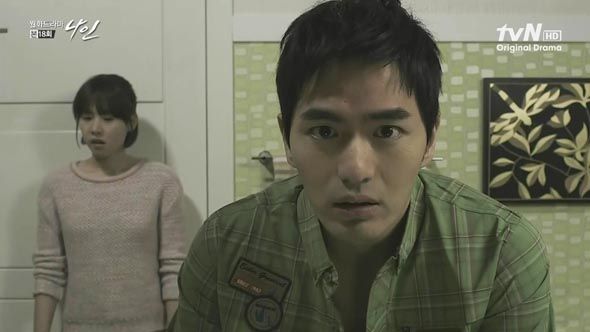
Speaking of brain diseases, one of Nine’s distinct strengths is its ability to take some hackneyed tropes and work them into a story that feels fresh. This is a feat, given the glut of time travelers crowding our recent memories: Rooftop Prince, Dr. Jin, Faith, Operation Proposal, Mi-rae’s Choice, and Queen In-hyun’s Man. It’s particularly impressive in light of that last one, which came from the same writer and director team; despite utilizing the same device, Nine stands on its own, different from In-hyun in structure, genre, tone, and format. (The main similarity is in its directorial touches with the split screens and musical cues, which remind us of the brand while remaining, ultimately, inconsequential as points of comparison.)
Nine is not expressly a love story, but the drama is clever in rooting its romance into the consequences of time travel: In tying in the device inextricably with our hero’s heart, we are immediately invested on an emotional level as well as an intellectual one.
Okay, not immediately, because Nine does take its time setting up its quandary and I don’t think it was to its benefit. Don’t get me wrong, I like stories that properly build their worlds and set up their conflicts—not all dramas should or could set the stage perfectly within the first hour. (American shows are especially guilty of this, which often results in frenetic pilots that are hard to engage with because stuff happens before we care about anybody.)
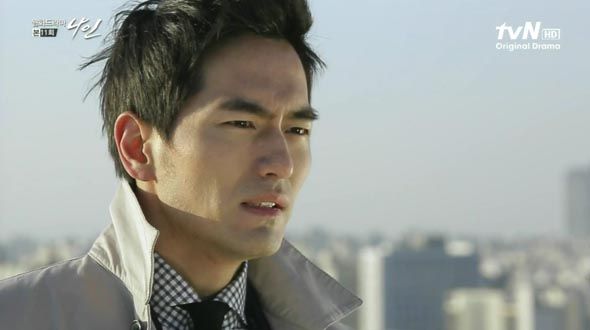
On the other hand, much of Nine’s first four episodes felt like chess pieces being maneuvered into place before the game could begin, and we could have gotten to the hook more efficiently.
Because what a hook it is: Our hero believes he can save Dad’s life and take down a villain, but as it turns out, Time does not like being cheated. Sun-woo overreaches by attempting to fix his brother’s broken heart on top of everything… and he returns to the future to find that he made his girlfriend his niece.
I know. But here is fauxcest used to its best effect, because it’s not some random third-act plot twist sent in to deliver some convenient angst. What better way to illustrate the consequences of messing with the order of things than by taking away his love, and in such cruel fashion? In both realities, Min-young (played by Jo Yoon-hee) is bright and bubbly and winsome—but in one of them, she’s out of reach, even if they aren’t blood related. In this lifetime they’ve grown up for the past twenty years as uncle and niece, since she was in grade school. In the blink of an eye, he’s created an entirely one-sided, inappropriate love for his brother’s (adopted) daughter.
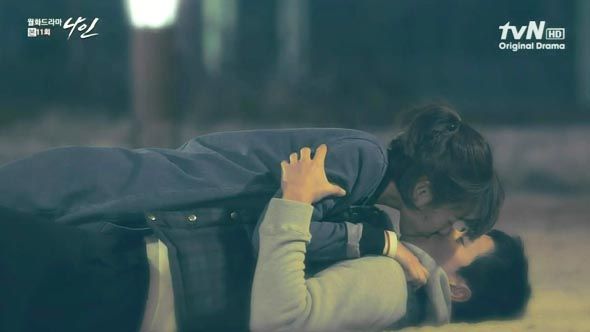
The twist delivers a genuine Ohhhh fuck kick, because setting things back to rights would require breaking up his brother’s marriage. It forces him to choose between love or family, between his happiness and his brother’s. There’s a whole lifetime of memories that no longer exist anywhere but in his head, which is both painful and consoling—if he’s the only one suffering, then maybe he’ll just take his punishment. On the other hand, he wonders at one point, “How I can I live this way if I miss my other life?” It’s doubly frustrating for him because he never appreciated how much he had until he’s lost it.
Thankfully the story doesn’t end on that angst, because there is so much more to get through. Sun-woo’s friend Young-hoon, aka The Best Friend Who Ever Was, is clued in to the whole shebang early and therefore gets to keep his memories from the old life, making him a much-needed source of support. He’s also a voice of reason, often echoing our thoughts in the face of Sun-woo’s stubbornness in pressing on, in pursuing what he needs to do despite the possibility of dire cosmic reprisal.
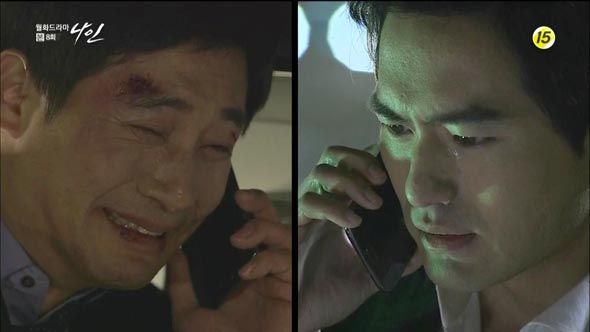
The mystery of Dad’s murder keeps the conflict moving, and Sun-woo struggles both to save Dad and to understand what happened that fateful night at the hospital. The first time he goes back to keep Dad away from the hospital, he returns to the future and finds that Dad ended up dying in the fire anyway—just a few hours later. So this is not the butterfly effect version of time, where one tiny change can have huge effects down the line; it’s more a fatalistic view, where the set pattern has a certain inertia that is difficult to displace.
For instance, take hyung Jung-woo (Jeon No-min), who is at the center of both the romantic conundrum and the father’s mystery. Sun-woo finds that while he may be able to finagle more life for his brother, who doesn’t die in the Himalayas this time, he cannot make the reclaimed life a happy one for him. Over and over again, hyung suffers, often the source of his own undoing, despite the warmth of his love and his generally decent character. His weak will is a constant factor in his downfall(s), and just because his life changes drastically (you don’t get more drastic than going from dead to alive) doesn’t ensure that the quality of his life is any different.
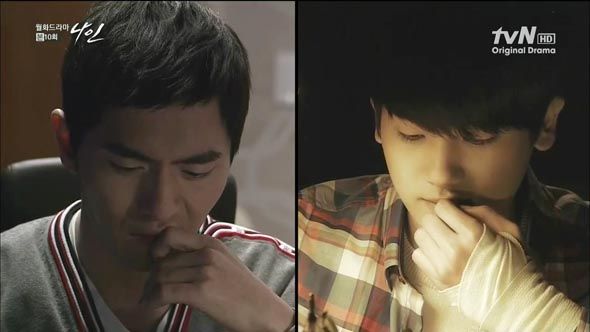
Sun-woo also takes a risk in engaging his past self, a dangerous prospect that turns into another of the drama’s highlights. Understanding that Younger Sun-woo (played by Park Hyung-shik) has the same tenacity and curiosity that drives himself, he makes the tactical decision to reveal his identity, and lets his younger self gradually come to acceptance. I appreciate the way these two actually feel like the same person, which many dramas don’t manage successfully when transitioning childhood roles into adult ones.
But more than that, in doing this Sun-woo creates an unforeseen complication that is alternately problematic and extremely helpful: Younger Sun-woo develops his own volition, independent of Older Sun-woo. What that means is that our hero finds it difficult to know what his younger version is doing in the past, because he loses a dimension of his memory when the past self starts acting independently. They are the same person, yet they almost become separate. It makes sense that as their stories diverge with Sun-woo’s experience, the wills they develop also change.
This is confusing, admittedly, but so interesting. Such as in the instance when Sun-woo is unable to warn Young Self of harm, yet Young Self figures it out anyway based on the clues he has deduced from the Future Self’s visit. Nifty.
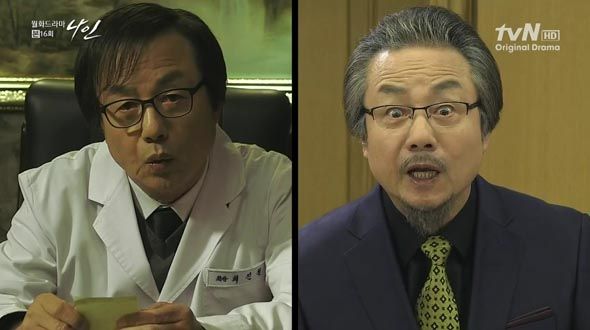
The issue of creating wills that weren’t initially present extends to our villain. Early on, Sun-woo treats the past as a place he can drop in on, do his thing, and leave—but he forgets that evildoers exist in the past too, who then start to conflict with his aims. He’s not the only one trying to get stuff done, and he finds his trips back becoming more and more fraught once Chairman Choi (aka The Big Bad) realizes something shifty is going on.
This leads me to one of the drama’s detractors, which is the outlandishness of the villain, who grows more and more cartoonish as the series goes on. He’s meant to be a legitimately evil foe, but it’s difficult to take him seriously; if mustache-twirling were a recognized literary device for villainy in Korea, he’d have a whole drawer full of stick-on mustaches, just in case the one on his face wore out from all the twirling.
I could do with less slack-jawed gaping as well, which accompanied every time a character was hit with a brainwave. I know it’s meant to emphasize the magnitude of the acquired memory, but surely the tilted-camera close-ups and the epic score got the point across. There’s also a seeming tvN fixation with sepia tones, which can muddle the picture quality with their darkness and lack of contrast. In this drama, it’s particularly noticeable given the frequent jumps back in time, which are tinted slightly darker, effectively making our color palette sepia and more sepia.
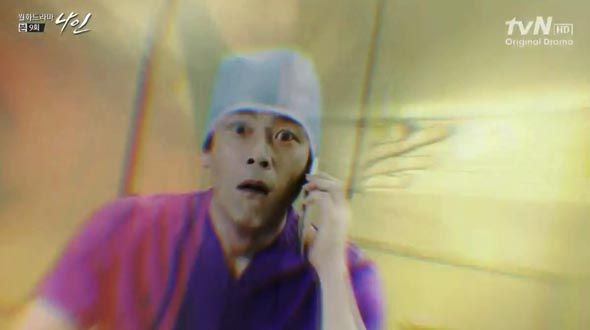
But those are minor points compared with the main hurdle, which is the way in which the plot grows ever more convoluted. This is not all bad, because there is enjoyment in having a drama complex enough to even merit close analysis; for the majority of dramaland’s offerings, there’s little point in trying to find meaning in things where none was intended.
Still, even for an intricate story, Nine sometimes gets caught up in its many twists—it’s not that they don’t make sense, but that it requires a certain amount of processing to keep everything straight. Because each time-slip keeps creating additional memories and alternate realities, keeping track of all the threads—who knows what, and in which timeline—can require a bit of mental gymnastics. There were definitely scenes when a character reacted to a change in a way that jolted me, because I didn’t think they would retain a certain memory or know a certain fact. Fair warning: Maybe you’ll want to draw a diagram, or whip up a chart.
THE ETHICS OF TIME TRAVEL
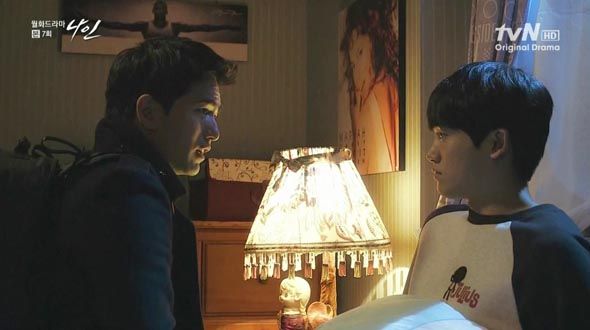
Whenever a time-travel drama comes along, I’m curious to see whether it will deal with the ramifications of altering time to one’s benefit. Is there a quid pro quo, or is he just gonna get away with a karmic freebie? Even if a character suffers over the course of his journey, many of these stories end with a feel-good reward for an ending, and we’re happy for them so we don’t question it. But while I’m not going to complain about Back to the Future giving the hero a spiffy life upgrade, I find stories much more intriguing when they choose to explore that concept of paying a price for cheating the laws of the universe.
Sun-woo begins his journey with the idea that he’s won a chance to make everything better. He soon finds that there’s a wild-card aspect to time travel; just because he got to go back and prevent something doesn’t mean he ultimately gets what he intended. Once Sun-woo is out of the past, things are out of his control; he soon finds out that Fate/Time/The Greater Powers always find a way to remind him that he isn’t the one deciding things.
The drama never defines this force as Fate or God in a religious sense, though the characters do refer to the greater power as a god that can’t be beaten or cheated. Every time Sun-woo tries to fix something, the world gets messier with more people’s lives being rippled by his actions and more parallel memories created.
I’ll discuss more about the consequences in the next post about the ending, but for now it’s enough to say that he cottons on to the fact that this isn’t a free pass, and his best friend regularly urges him to quit while he’s ahead. Even so, Sun-woo remains true to his character by opting to do his utmost anyway, even if the results are not assured. I love that message: that Fate may have you by the throat, but you have to live your life your way anyway. Do what you can and let the chips fall where they may.
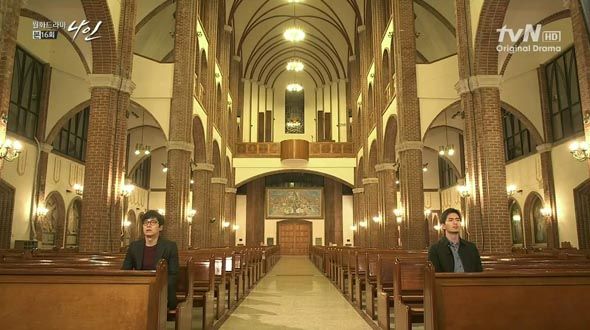
FINAL THOUGHTS
Nine took a while to engage my interest fully, despite being executed well from the start, and I think if the American remake were to go forth with its pilot, it would probably speed things up mightily. I just hope it doesn’t cram too much at once, because there’s a lot of plot here and it doesn’t need to get any more confusing. Plus, there are revelations that land with us expressly because we’ve been given the chance to feel what that means for the characters, and speeding things up loses that impact.
Once it got going, though, it built up from a slow burn to a consistently suspenseful pace; there were multiple moments when I genuinely had no idea how our hero could get himself out of a bind. The show keeps you guessing, and for me that on-edge uncertainty lasted well into the last episode, as I wondered right up to the ending how things would wrap up.
Performances were strong throughout, especially for Lee Jin-wook, for whom the drama marked a career turn. He hasn’t had the most successful projects in the past, but this one really showed him off to best advantage, all deadpan humor and brusque charm. Jo Yoon-hee was also solid, doing much better after shedding her pretty ingenue image for one with much more personality, and they had endearing chemistry together. (The many makeout scenes definitely don’t hurt, especially when adults are allowed to kiss onscreen like real adults.)
Nine didn’t have my heart in the way that some other favorites had, but it kept my brain engaged the whole way through, and is ultimately a worthy series with an interesting spin on a familiar conceit. I’ll be posting on the ending soon, so stay tuned!
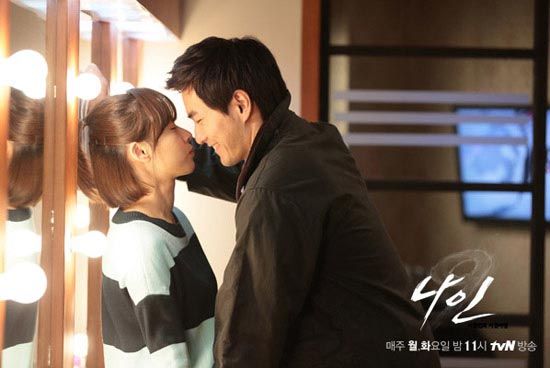
RELATED POSTS
Tags: featured, Jo Yoon-hee, Lee Jin-wook, Nine: Nine Time Travels
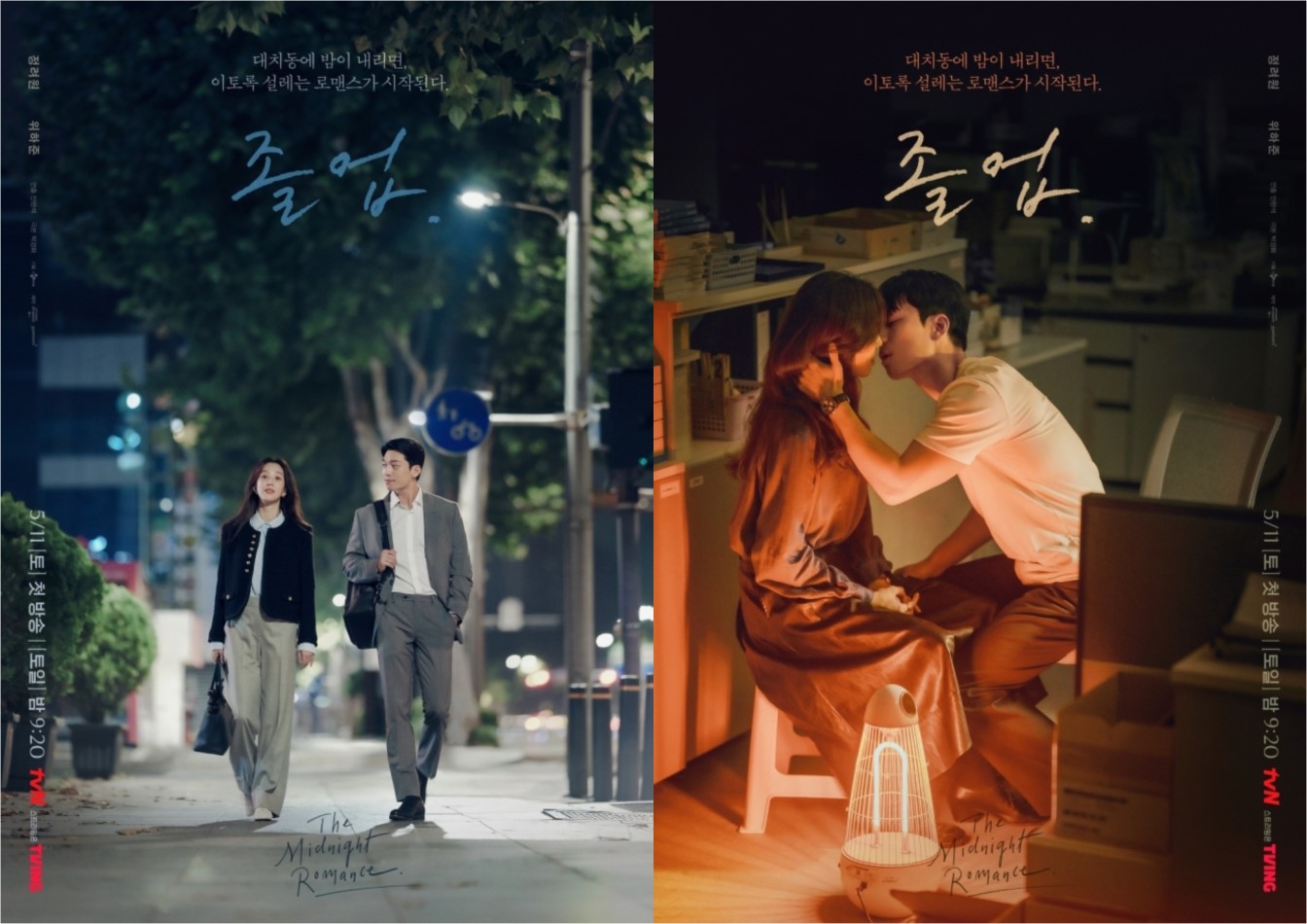
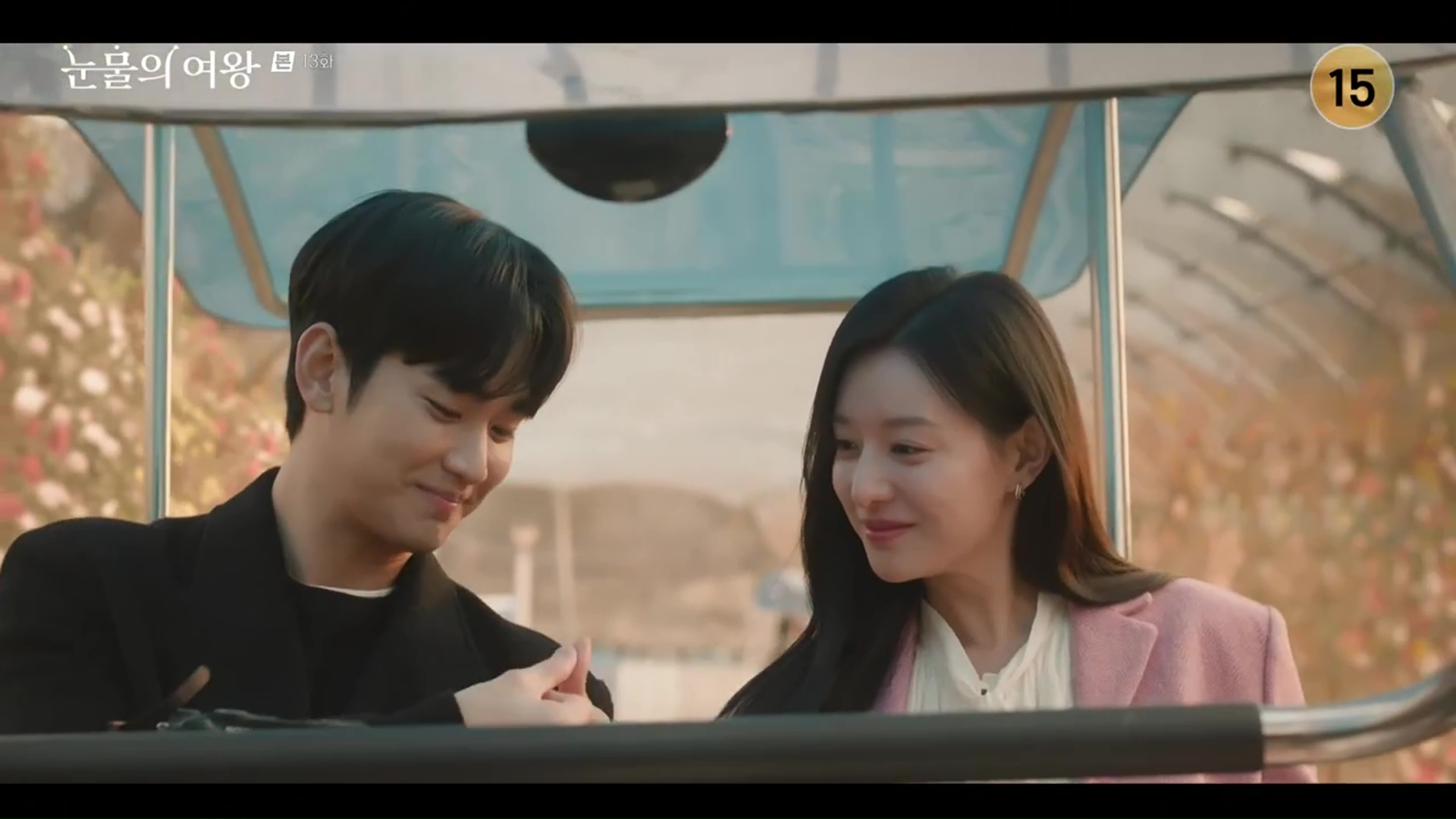
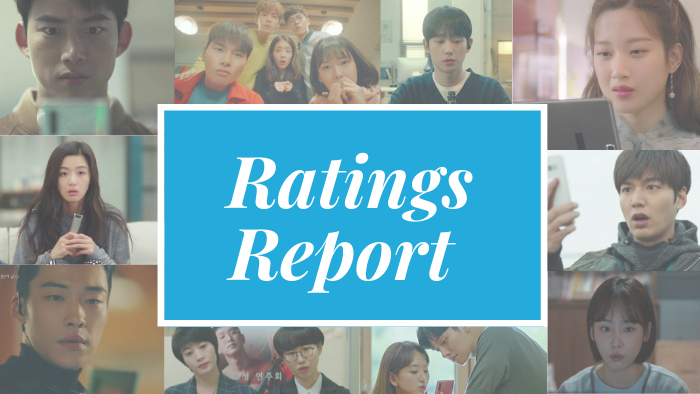
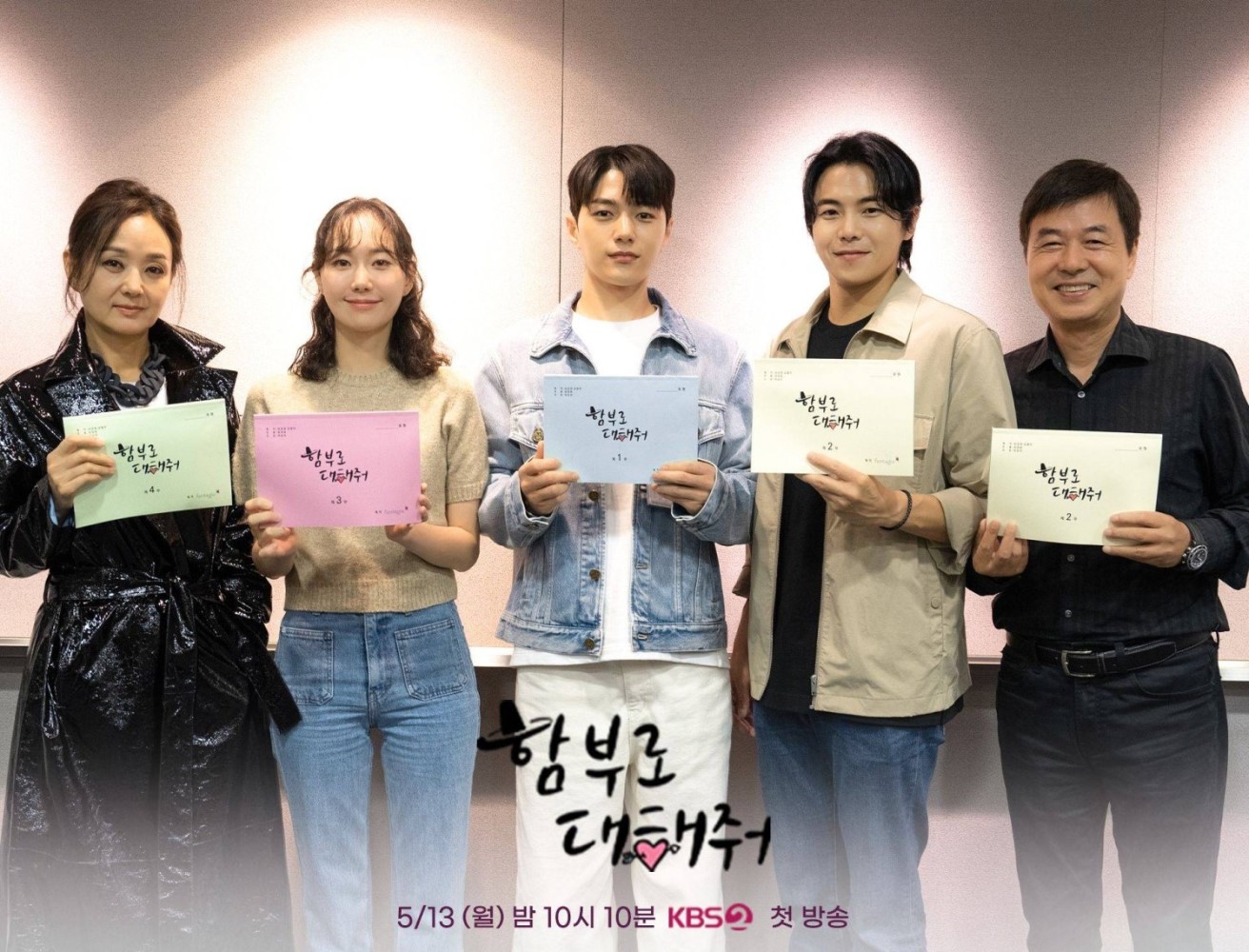
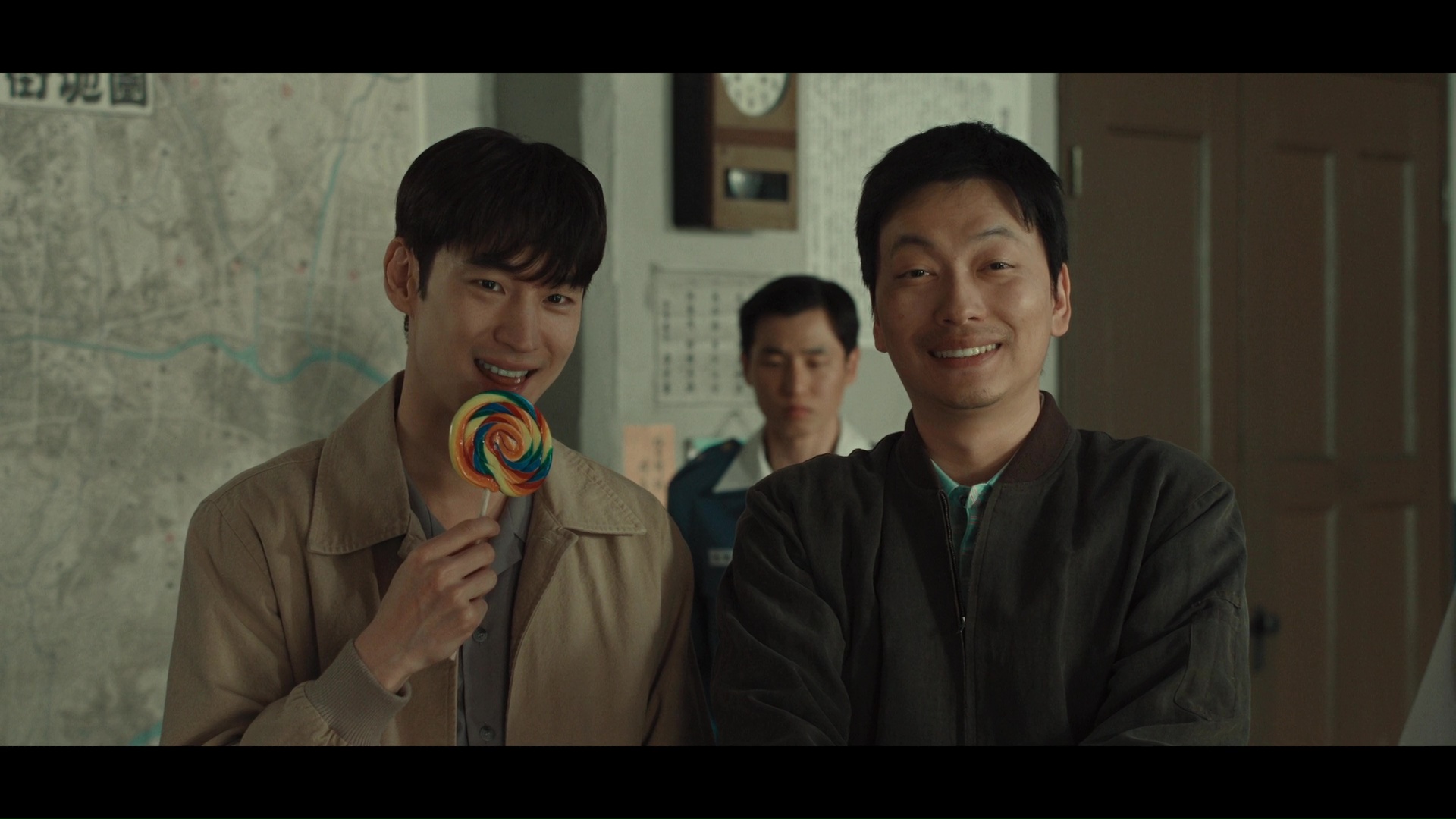
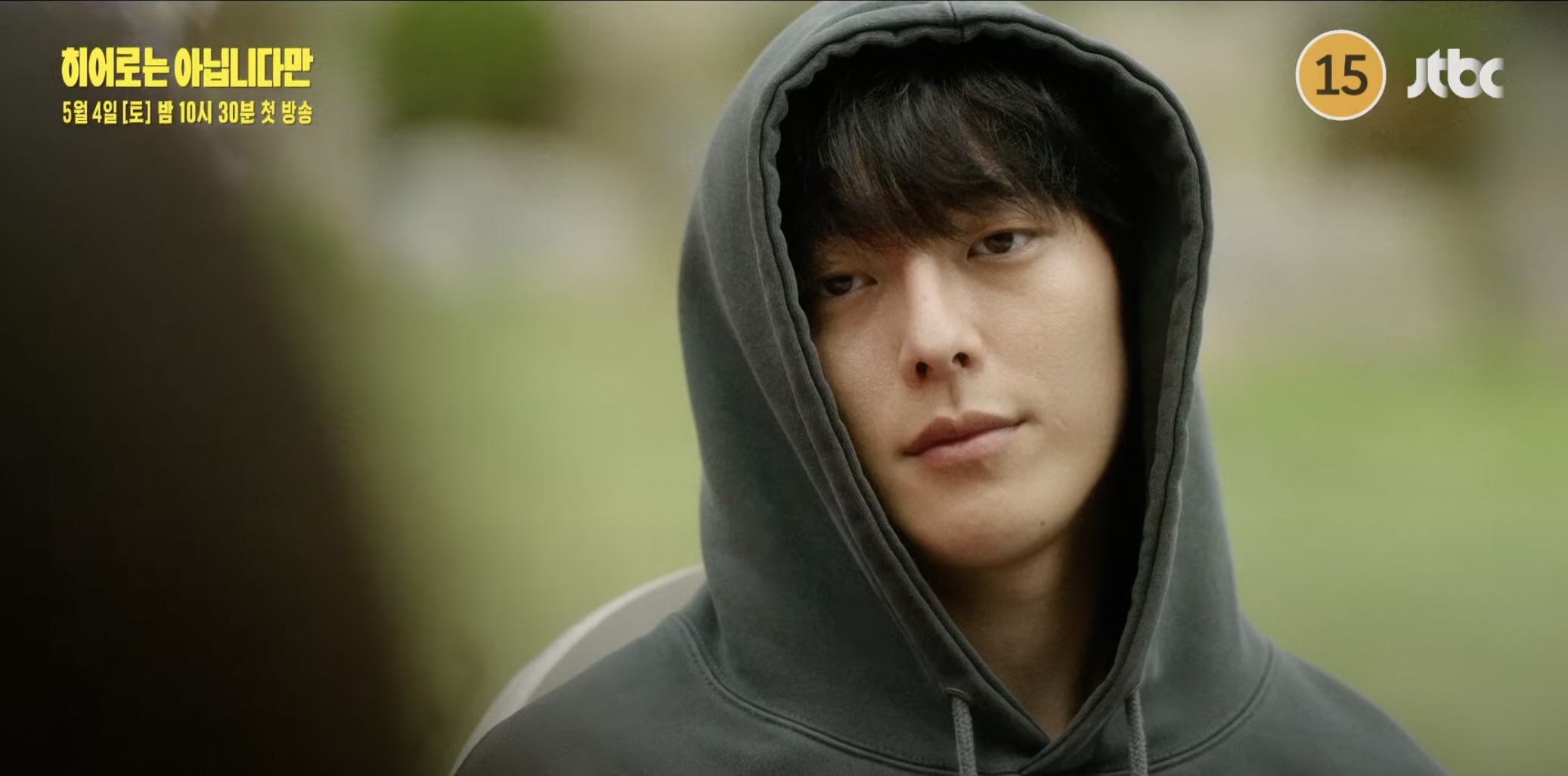
![[Drama Chat] The mysteriously disappearing desire to watch](https://d263ao8qih4miy.cloudfront.net/wp-content/uploads/2023/10/didiva_5-scaled.jpg)
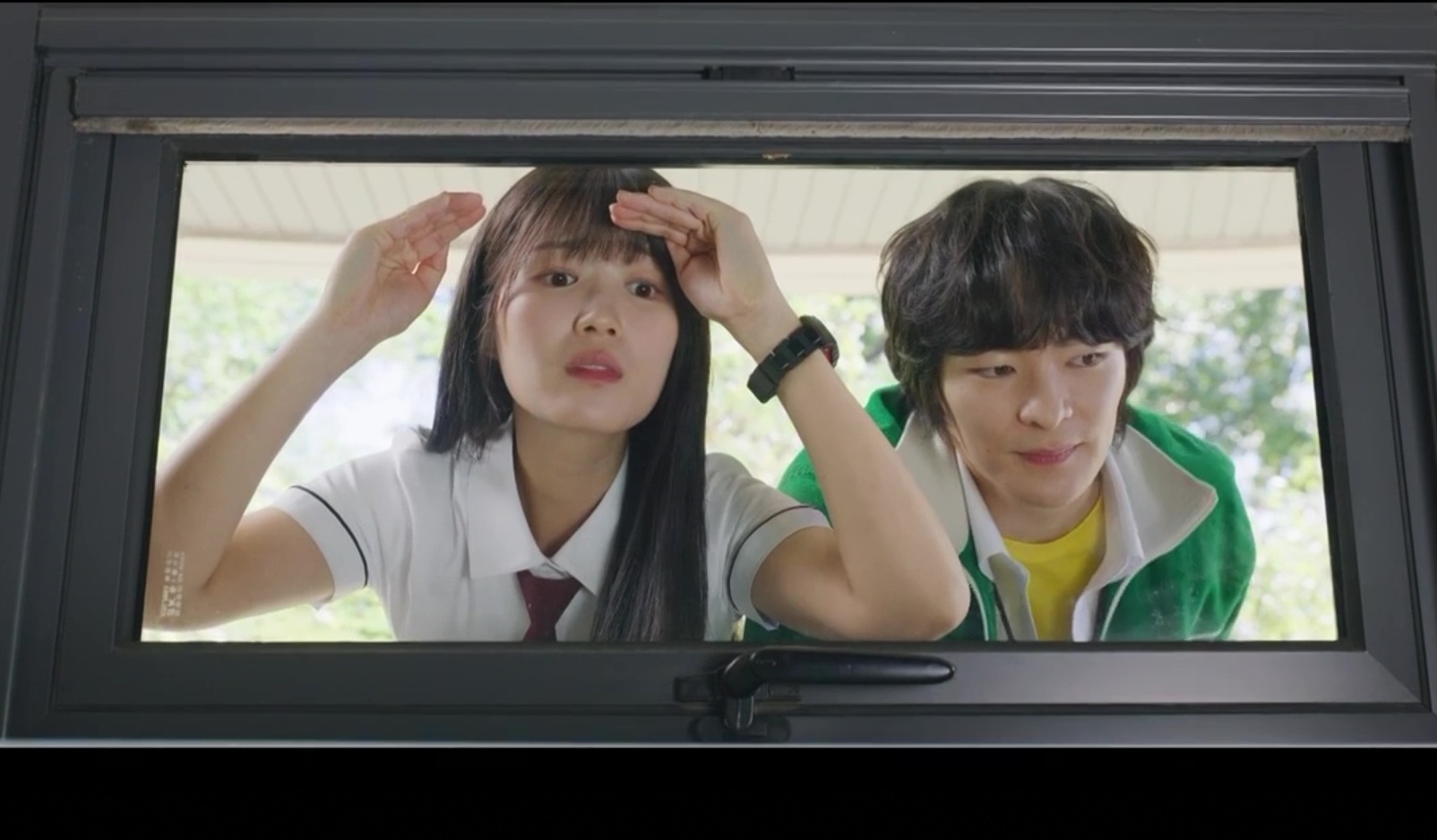
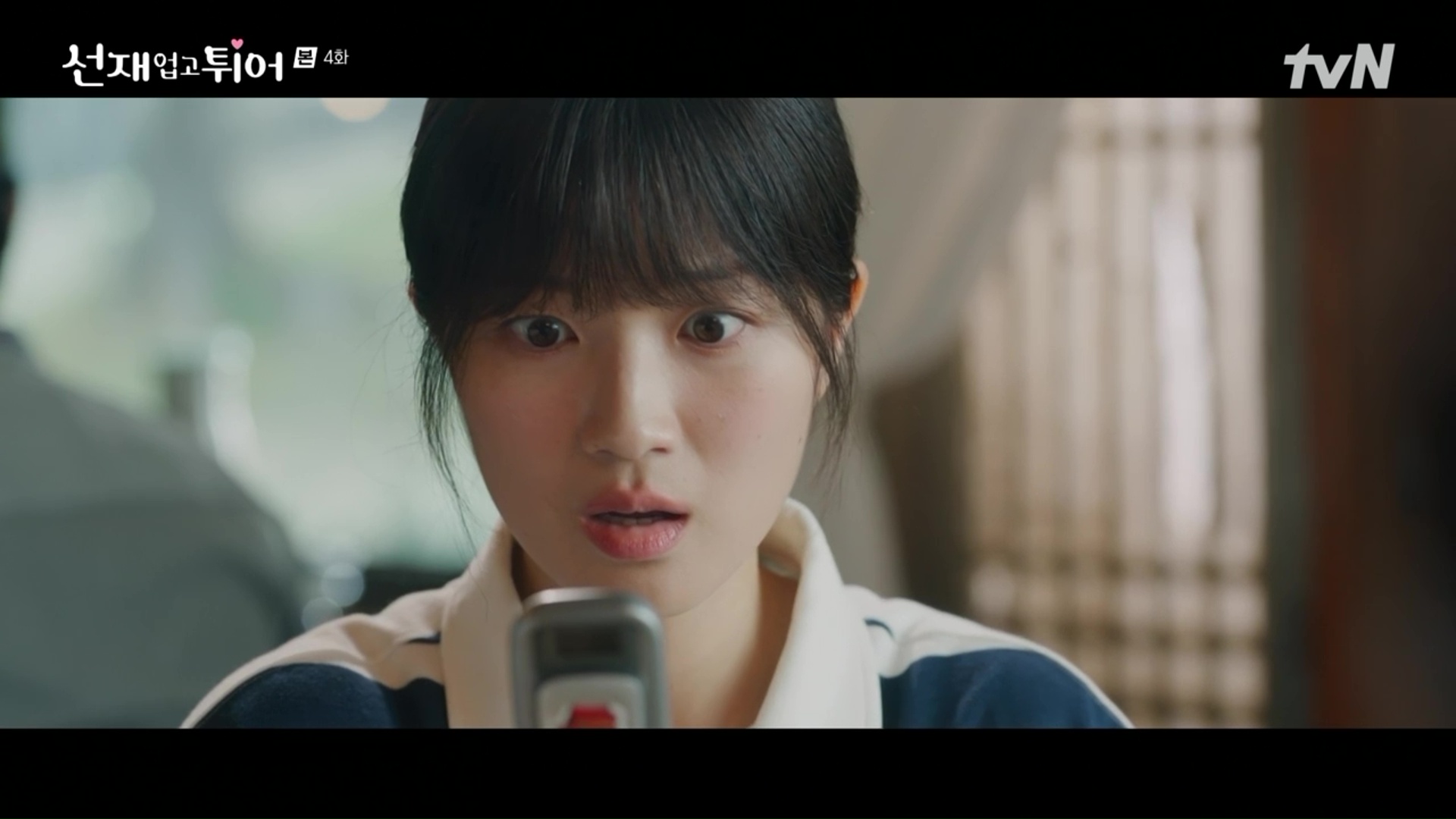
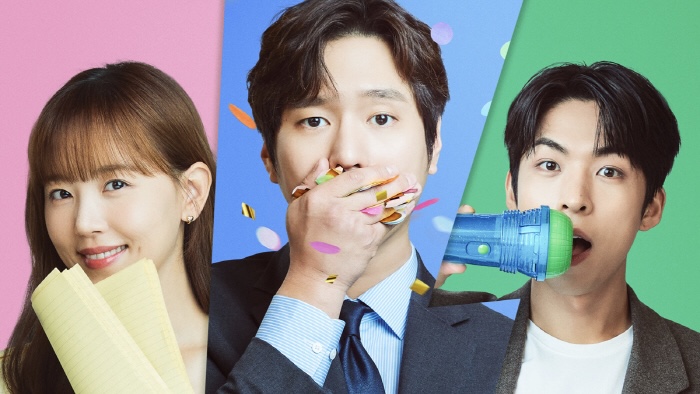
Required fields are marked *
Your email address will not be published. Required fields are marked *
51 kdrama_addict22
November 25, 2013 at 11:58 PM
My mom and I LOVED this drama! We were so into it. ^^ And yes, it involved a LOT of diagram drawing on my part to organize out events in my mind and to explain it to my mom :P
Required fields are marked *
52 Chinee
November 26, 2013 at 3:21 AM
Thanks a lot for doing a review for NINE. When it was airing I wished that db would recap its every episode coz even at the on set I had a feeling that it would be a great drama.
I watched this drama firstly because of Lee Jin Wook as I believe that he is a very fine actor who considers good roles before engaging in a drama. He did not disappoint me and I'm very proud of him.
Nine is a very well-thought series worth watching and worth an American remake! Like db said it took a few episodes to set up properly but it's worth all the wait.
I agree that Nine is one of the best drama this year.
Required fields are marked *
53 Alvina
November 26, 2013 at 10:43 AM
I couldn't care less about the "big bad" and the main storyline. The draw for me was the friendship between Lee Jin Wook's character and his friend :)
Honestly, their friendship was so beautiful and so touching.
Required fields are marked *
54 Chinee
November 27, 2013 at 12:20 AM
Thanks a lot DB for this post. Nine no doubt is a very highly recommended kdrama and a must-see for all time travel drama junkies out there.
It is a very well-conceptualized, well-casted and well-executed project that warrants esteem and sets the bar for future time travel dramas, if there would ever be more to come.
Lee Jin Wook was the first reason for me to watch this drama, he is one of my Top 5 favorites, a very fine actor and an eye candy as well. I have watched almost all of his works and I am very proud as to how he has grown in depth with his acting in this drama. Second was the writer-PD tandem because they made a good impression with me on Queen In-Hyun's Man.
Hope I could watch the US remake once it's aired, it's very flattering though I doubt they could do it better than the original. So here's hoping they could air this original series first with subtitles
Required fields are marked *
55 azkiya
November 28, 2013 at 12:35 AM
i've seen this post but haven't got a chance to read it, but here i'm now..as JB said it's better late than never ^ ^
i really really like Nine! \O/
would consider this as one of the best k-dramas i've ever watched.
Strangely enough, though, it didn't feel as "k-drama enough" for me, and that largely because i would seek this kind of drama from J-drama land: tight plot, brainy, cartoonish (but not-less devilish) evil/ villain.
Queen In Hyun Man is what i have in mind if i would picture how a k-drama would handle time-travel plot; sweet, yet angsty, a bit of mystery, but still expected to leave you feeling good.
i found that 'action' or 'mystery' k-drama i've watched could not fill in what the japanese drama had done good on my watching-drama experince.
just like City Hunter, which didn't satisfy me as a good japanese drama in that genre would.
Having said that, when i watched Nine, i was like "wow, i love this!!". Hence, should i prepare to be wowed by '2 weeks'? Beanies seem to give a good rapport on that one..i promise i'll let you guys know if it can wow me as Nine has.. :)
Required fields are marked *
56 Bella
December 5, 2013 at 3:34 AM
Thank you for reviewing it.
It is my favorite drama this year and I absolutely loved it..I got really irritated when DB stopped recapping at ep 2 when it's first aired. :D
Required fields are marked *
57 raine0211
December 19, 2013 at 9:47 PM
I marathoned it the past two days and I must say that it wasn't confusing. I can see how it would be while it was airing though. I liked the slow pace at the beginning.
I hated Choi's faces. Ridiculous.
Thanks for the review!
Required fields are marked *
58 jsmd
December 27, 2013 at 10:08 PM
I know this is really really late, but I have just started watching this drama, and I hope someone can help me find a song. There was a song playing in Episode 6 while SW's sister-in-law was talking about the time she met SW's dad. Can someone please tell me the title of the song, if by chance, people know the title? Thank you!
Required fields are marked *
59 shf
January 21, 2014 at 9:04 PM
i'm glad you recapped this. it was one of my faves and i was waiting for someone to recap it! yay!
Required fields are marked *
60 Ksharp34
February 19, 2014 at 8:17 PM
I just watched this off DVD. I have been seeing some episodes on mnet and I had to get the entire thing.
The stick could have been the tenth stick that was used by the man who only needed one stick to go back and change his family. And it being an older SW gone back to save his older brother on the mountain twenty years late. It could not have been one of the sticks the brother had on him because we know they were used. And Choi couldn't use one of the two sticks since it had been used. But how on earth could a man known the exact location to find the brother in a 30 minute timeline, and get the brother who is dying off the mountain? I think it was the present day SW who followed his brother and the girl he liked to Nepal. How could the present day SW NOT save his brother. I think since he knew the sticks failed to prevent his dad's death and failed to keep him alive per her trauma story he wouldn't dare use a stick again. It takes time to get up the mountain. He could have had a beard. I can't recall if a year was up on the screen?
I have so many questions. Like who was leaning on choi so much that he was in trouble with the dad/head of hospital? How did the brother learn of the sticks in the first place? What SW meant by "it hurts every time I lose you" when answering the question if why only marry for 3 months? Suggests he lost her before. Does the older brother have to go back to start the sequence rolling so he can be saved, or does he have to do that? What was nice about this and different from back to the future was the time rules. Marty had to make sure not to interfere with his other selves or he would mess up the future that allowed him to go back in time. But once we get to the start of the stick use do they need to be used for the past to remain the past? Will it revert to a sequence as if the sticks never happened? Brother dead, choi wealthy and SW dead from a tumor months after his relationship got serious? What happened to the guy choi hired to kill SW and SW teen? He was tied up in the record store. I never saw him sentenced. Just JW and choi. He did torch the place. There would have blood all over the record store and with the mishap in the alley wouldn't the two things have been connected?
Required fields are marked *
61 Ksharp34
February 20, 2014 at 8:41 PM
Actually none of them know the brother dies on the mountain, least in the original sequence of events. All of the 2012 characters from the revised past do not have memories of the entire incense time line(s). In the restaurant the brothers do not appear to talk of it. Other than it being clear the older brother knows it was the current age brother going back in time to help them. And SW not wanting to dwell on it. Even if both knew about the travel being from incense sticks, I don't think the traveller SW told the teen SW, Friend or bother in his twenties about the older brothers death on the mountain? And 2012 SW from the revised past did not bring a yellow coat to the Nepal. But the older brother had the red coat at the steak joint. Just like the coffee joint. Would the older brother of the revised past, if he learned about time traveling sticks, seek them out and go back and try to change the past? That revised past JW didn't know about SW phone booth death. Maybe he would have felt obligated and figured it out? Part of me thinks the revised past doesn't depend on the future selves repeating events to make sure the past stuff happens. They ended the series in a splendid place to leave that detail unaddressed. More fun to reason ending. I will be watching parts over to try and figure out lost details. It's that kind of series. I really hope the American remake doesn't muck it up. I can't believe that the teen SW never lit a stick.
Required fields are marked *
62 drina ros
March 27, 2014 at 1:47 AM
dear JB, my sister is trying to understand why oh WHY the LP record which has Park Min Young's handwriting still exist in the after-effect world? she asks bcoz she feels confused since in the previous episodes, NINE illustrates that all things that connected in previous alternative world will vanished after Sun Woo change the fate. such as When in the Bar suddenly Min Young's body just disappeared just like when Sun woo's dead body also disappeared on surgery table. somebody please help her to understand this... bcoz since she sees this is really make no sense and she wants to drop the drama.
Required fields are marked *
63 Moataz Seada
May 10, 2015 at 2:49 PM
I liked this drama, but it has one big inexcusable hole plot, who guesses?
Required fields are marked *
Moataz Seada
May 10, 2015 at 2:57 PM
Ok, it is obviously when the mature protagonist could receive the burnt incense container and used it, even though the evil hospital director and the corrupted police man could get it back at one point?!
If they could get it back, so the young protagonist couldn't keep it " for the next 20 years" as he hoped, and the mature protagonist would never been able to receive it.
what illogically happened is :
Container burnt > the young protagonist supposedly kept it for 20 years > the old protagonist could receive it and use it again > then illogically the course of " keeping it for 20 years " was cut by stealing it by the evil hospital director.
It was either kept or stolen, you can't steal it and deliver it to the future at the same time, Mr. screenwriter.
It is a plot HOLE.
Required fields are marked *
64 prettysup
June 11, 2015 at 7:11 PM
Love this show, love LJW.... why didnt i discover it earlier?
Required fields are marked *
65 sungjong
June 18, 2015 at 4:24 AM
I cant believe it is only in 2015 , after watching innumerable kdramas that I got hold of this absolute masterpiece. Lee Jin Wook is fantabulous totally drool worthy.but the real winner I'd the plot and the ending . Not a fluffy feel gooder . it hits you hard .. Even while leaving a lot of hope . I actually sobbed in the last episode . The final kiss was heartbreaking . Knowing he was dead but then the ending put so much meaning to everything . Thank you for this discussion jb. This sure will be one of my all time favs.
Required fields are marked *
66 lunatic4kd
March 23, 2016 at 2:53 PM
Time jump forward with my time-machine - my 2016 Apple laptop. I'm sitting here on March 23rd, 2016 in the middle of Texas, just finding this drama due to the current airing of Goodbye Mr. Black - which I LOVE. It made me seek out other Lee Jin-Wook series.
I just finished episode 4 of Nine and am thoroughly enjoying it. After the perfection and beauty of Signal, it's refreshing to see an older drama which handled time travel/communication with great (if not as good) aplomb.
I'm bored these days as I wait each week for the next episodes of Descendants from the Sun, Please Come Back Ahjussi, and Goodbye Mr. Black.
Nine perfectly plugs the boredom hole!!!
Required fields are marked *
67 Moon Min Min
August 31, 2020 at 8:26 AM
I traveled back in time (without an incense stick) to watch this drama because 1. I love time travel, and 2. I love Park Hyung Sik and wanted to see him at the start of his career. Neither let me down, nor did any of the other actors, or the plot. I absolutely love the treatment this show gives to the time-travel genre; it was so unique and actually made sense, if that is even a possibility.
There were moments (many) of heartbreaking sorrow, balanced by moments (not as many, but enough) of joy, and humor to break the tension.
I found the villain to be the only sour note, as he was so over-the-top with the ridiculous facial expressions that he seemed almost a caricature, and the friend sometimes fell into the same trap but more than redeemed himself in the end.
All in all, the best time-travel drama I've ever seen, and the recap for this and for the ending also one of the best ever--so thanks! (I do realize that it all happened seven years ago, so no one may ever read this--maybe I should have written it on a guitar!)
Required fields are marked *